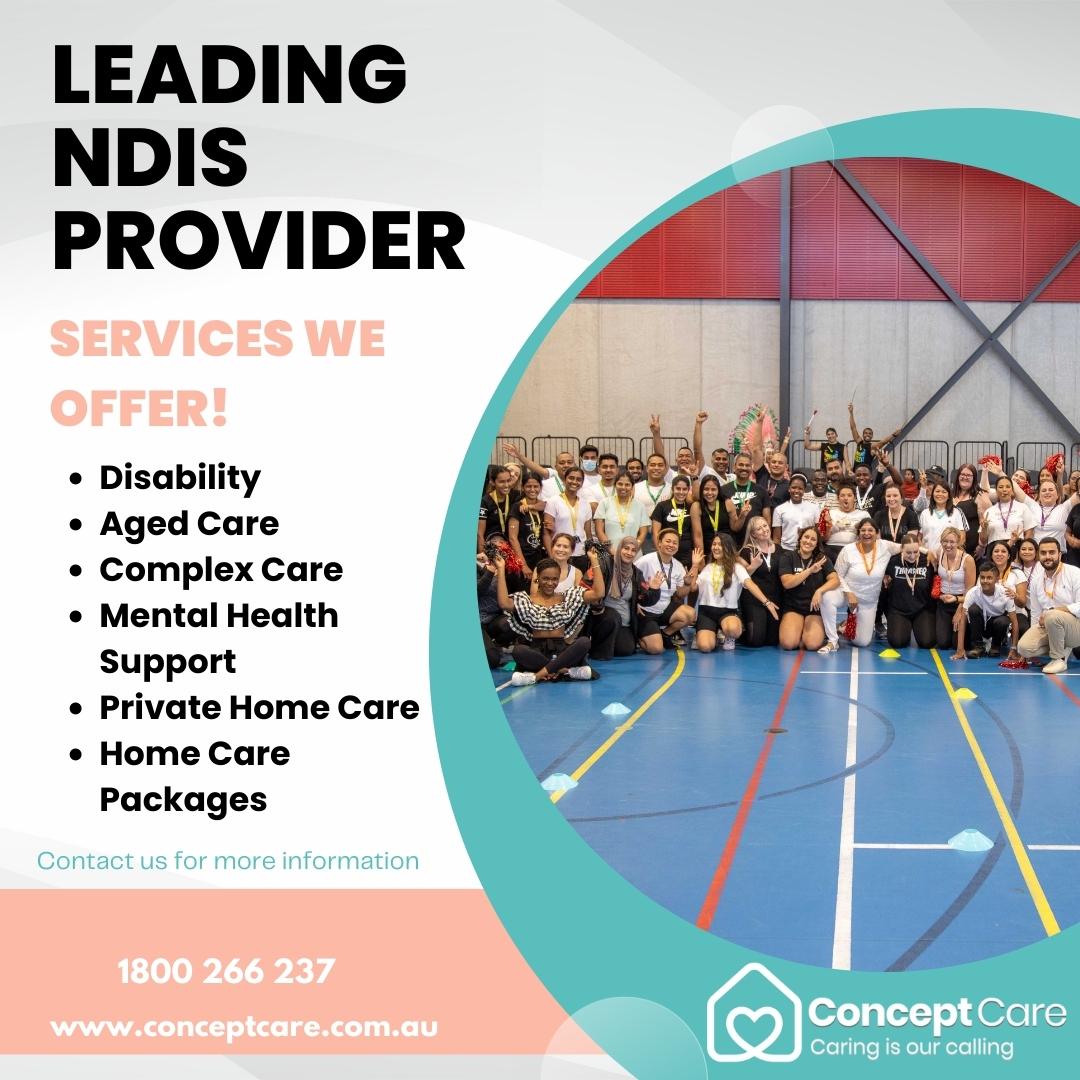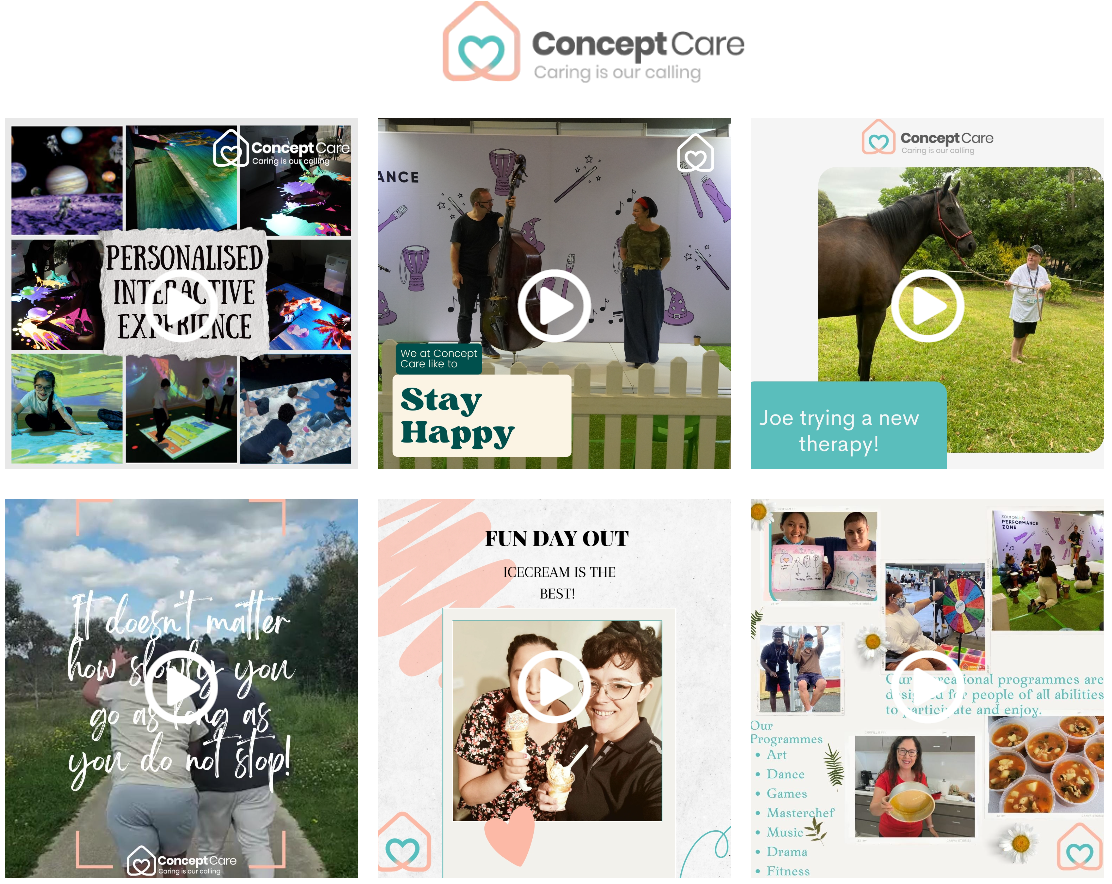What Types of Therapy Services Are Available for People with Disabilities?

Strong 8k brings an ultra-HD IPTV experience to your living room and your pocket.
Navigating life with a disability can be a journey filled with questions—about independence, wellbeing, communication, and connection. If you’ve ever felt curious or overwhelmed trying to figure out what support options are available, you’re absolutely not alone. The good news? A wide range of therapy services exists to match diverse needs, and with the right guidance, you can feel confident exploring them in the supportive environment of Sydney.
Let’s unpack the many types of therapy you might come across in the world of disability support services. This guide is warm, friendly, and practical—like a conversation over coffee with someone who totally gets it.
🧭 Understanding Therapy Within Disability Services
First things first: what is therapy, and why does it matter? In the context of disability support services, therapy involves working with trained professionals who help you build skills, improve your wellbeing, and achieve specific goals—big or small. Sydney has plenty of providers, including NDIS support workers, disability service providers, and specialised private disability care teams, all focused on making life smoother, more confident, and more independent for you or your loved ones.
1. Occupational Therapy (OT)
Think of occupational therapy as “everyday life therapy.” Occupational therapists support individuals in mastering life’s daily tasks—like dressing, cooking, and using technology. If mobility or fine motor challenges are present, an OT might suggest adaptive equipment or teach new ways of doing things.
Why it matters: Builds independence and confidence.
Typical clients: People with physical, cognitive, or developmental disabilities.
What it looks like: Adapting homes, practising self-care routines, exploring assistive tools.
2. Physiotherapy
Physiotherapy—or “physio”—focuses on physical strength, movement, and flexibility. Whether you’ve experienced a spinal cord injury, cerebral palsy, musculoskeletal condition, or another impairment, physiotherapists can work wonders.
Why it matters: Enhances mobility and reduces pain.
Typical clients: Individuals with physical or neurological conditions.
What it looks like: Strength exercises, balance training, stretching, hydrotherapy (yes, wading in the pool!).
3. Speech Therapy
Speech therapy isn’t just about talking—it’s about communication and safe eating. Also called speech pathology, it supports anyone who has difficulties with speech sounds, language, swallowing, or social interaction.
Why it matters: Improves communication and confidence.
Typical clients: Children and adults with developmental or neurological differences.
What it looks like: Speech exercises, AAC (alternative augmentative communication), swallowing strategies.
4. Behavioural Therapy
Focused on emotions, responses, and learning patterns, behavioural therapy supports individuals (often on the autism spectrum or with ADHD) in navigating everyday life scenarios.
Why it matters: Builds social skills, emotional management, and positive routines.
Typical clients: Those with autism, ADHD, or cognitive needs.
What it looks like: Structured support sessions, sensory strategies, reinforcement techniques.
5. Psychological and Counselling Support
Your mental health counts—and therapy can offer a compassionate space to explore it. Counsellors and psychologists provide understanding and coping tools for anxiety, depression, grief, life transitions, and more.
Why it matters: Enhances emotional resilience and overall wellbeing.
Typical clients: People living with disability who may experience stress or social isolation.
What it looks like: One-on-one conversations, creative therapies, supportive strategies.
6. Creative Therapies (Music, Art, Drama)
Healing and growth don’t only happen through words or physical activity. Creative therapies are expressive, fun, and deeply meaningful.
Why it matters: Encourages self-expression and emotional exploration.
Typical clients: All ages and abilities, especially those seeking less traditional therapy forms.
What it looks like: Music-making, drawing, drama games, and storytelling sessions.
7. Hydrotherapy
If you enjoy being in water, hydrotherapy could be a wonderful fit. Conducted in warm, supportive water settings, this form of physiotherapy is soothing and effective.
Why it matters: Lessens joint strain and enhances movement in a calming environment.
Typical clients: People with mobility issues or chronic pain.
What it looks like: Swimming aids, walking in water, guided movement routines.
8. Life and Social Skills Training
Whether you’re wanting to cook more independently, learn public transport, handle money, or make social connections—these skills are essential and achievable.
Why it matters: Opens doors to independence and community inclusion.
Typical clients: Young adults stepping into independence, or anyone refining life skills.
What it looks like: Role-play, real-world practice, group workshops.
9. Respite and In-Home Support
Sometimes, the best therapy is rest—or having someone else available so you can step back. Respite care, delivered by caring NDIS support workers, offers families breathing room and individuals the chance to relax or engage in community activities.
Why it matters: Supports wellbeing, reduces overwhelm, and fosters renewal.
Typical clients: Families, carers, or those preferring companionship or backup.
What it looks like: Short visits, overnight stays, weekend support sessions.
How to Choose the Right Therapy
Clarify Your Goals
Start with what you want to achieve. Want to talk more clearly, move with less pain, or connect better with others? Specific goals make it easier to choose.
Understand the Different Approaches
Read up or talk to support coordinators about how each therapy works and how it aligns with your lifestyle and values.
Try a Session
Don’t feel you must commit forever. A single session or trial can help you feel out if the therapy style "clicks."
Consider the Setting
Some services come right to your home in Sydney; others take place at pools, community centres, or clinics.
Build a Team
Many people find combining therapies—say, OT and psychology—offers well-rounded care. With coordination, each professional supports your bigger vision.
Your Rights & Supports on the NDIS
Under the NDIS, therapy services are considered supports and funded based on your individual plan and goals. Sydney disability service providers, including private disability care teams and NDIS support workers, can help you navigate the plan process. If you're seeking therapy through the NDIS, it’s worth talking with your planner or support coordinator about including the therapies that matter most to you.
Making Therapy Feel Personal
Keep communication open. Tell your therapist what’s working, what’s not, and how you feel.
Set attainable goals. Whether you want to drink from a cup unaided or have a social conversation, small wins matter.
Stay consistent. Therapies often work best with regular practice—even 10 minutes a day can build momentum.
Involve your circle. Families, friends, carers—invite them in. They can reinforce skills and support your progress.
Celebrate every achievement. Each step forward, from saying a word to using a new tool, is worth acknowledging.
Accessing Therapy in Sydney
Sydney is home to many disability services, from big NDIS-registered companies to smaller specialised providers. You’ll find therapists working across different settings—home, clinic, school, pool, or community centre. To find the right fit:
Check credentials and experience — especially with specific conditions.
Ask for referrals from community groups, doctors, or other families.
Look for providers who prioritise your whole self—not just the disability.
A Supportive Closing Thought
It’s perfectly okay to feel unsure at first—choosing therapy doesn’t have to feel like all or nothing. Perhaps you begin with one session of physiotherapy, see how you feel, and later add in a bit of art therapy. That’s progress. Every step you take is a move toward greater independence, wellbeing, and self-expression.
Concept Care Disability Solutions (Concept Care) is an NDIS registered service provider in Sydney and recognised as one of the best disability service providers in the region. Our mission is to provide unmatched support to people with a disability and improve their quality of life. We have many highly trained, dedicated carers specialising in various care approaches. A 24/7 on-call team allows us to respond rapidly to urgent care requirements. We’re experienced in supporting people with complex and high-care needs due to severe disability or chronic conditions like spinal cord and brain injuries, cerebral palsy and epilepsy. Transportation can be a significant challenge, so we maintain wheelchair-accessible vehicles. Our team can support people during shifts ranging from two to twenty-four-plus hours.
Contact Us
Email: [email protected]
Phone: 1800 266 237
Exploring therapy is a brave and hopeful step. It’s about uncovering strengths, building confidence, and shaping a life that feels right for you. If you’re ready to begin—or just want someone to talk it through with—you don’t have to go it alone.
Note: IndiBlogHub features both user-submitted and editorial content. We do not verify third-party contributions. Read our Disclaimer and Privacy Policyfor details.







